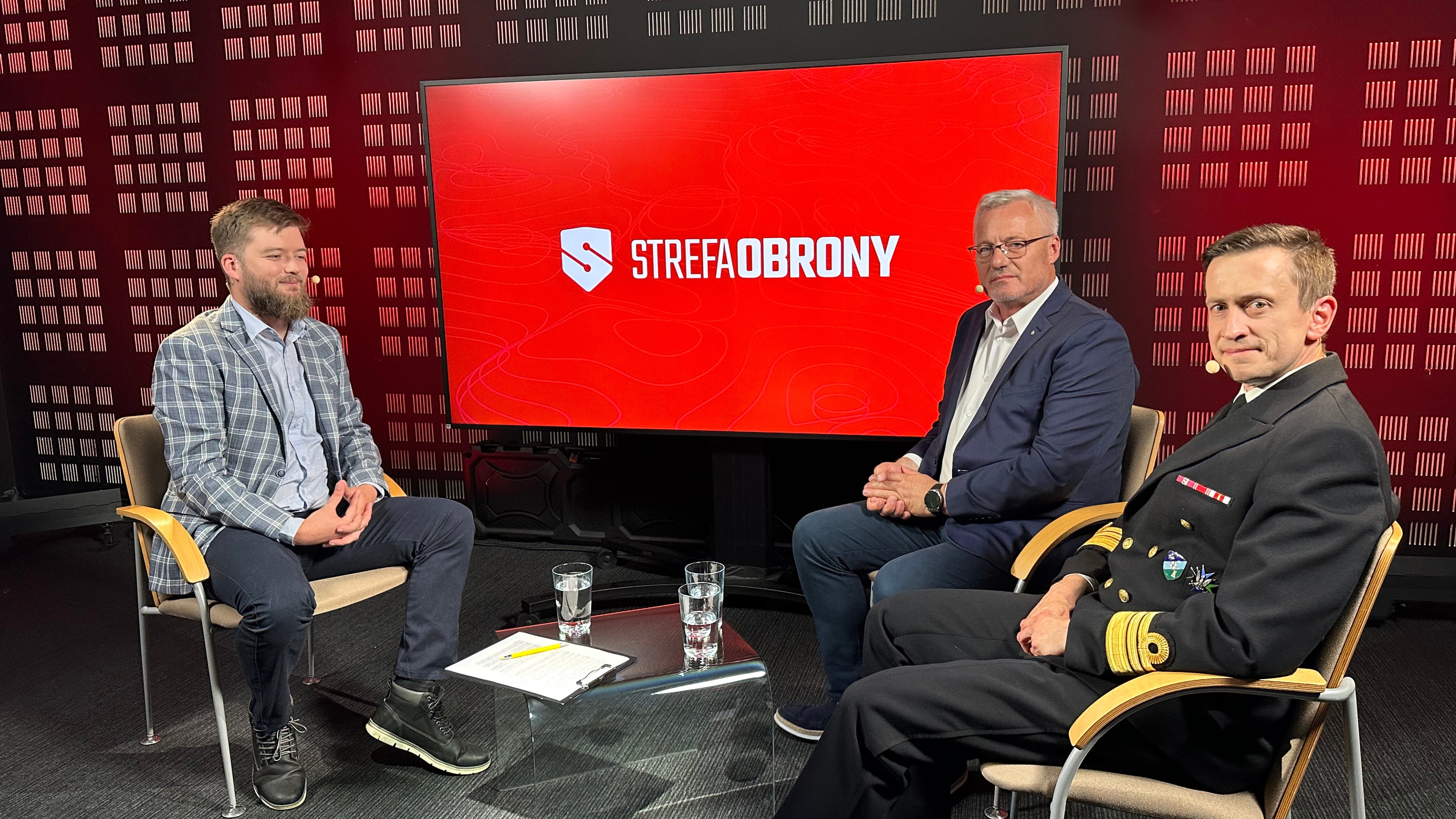
Guests of the Strefa Obrony studio included Rear Admiral (Ret.) Krzysztof Zdonek, Alioth Foundation expert and former commander of the 8th Coastal Defense Flotilla, and Lt. Cmdr. Krzysztof Pająk of the War Studies University. The discussion was moderated by journalist Dawid Kamizela. The debate focused on the growing role of unmanned systems in maritime security, their integration within the structures of the Polish Navy, and the challenges related to protecting critical infrastructure in the Baltic Sea region.
Both experts agreed that unmanned surface and underwater systems – and their evolution at the national level – will become fundamental to Poland’s future defense potential, both in preventive activities and in crisis escalation scenarios.
Rear Admiral Zdonek pointed to a new quality in naval operations:
“Thanks to unmanned systems, we can not only clear waters of mines but also precisely monitor critical infrastructure. In the context of today’s hybrid threats, such as sabotage or the unauthorized presence of foreign units, these capabilities are essential.”
Lt. Cmdr. Pająk highlighted the growing operational possibilities of modern surface and underwater drones. According to him, they allow the Navy to operate more effectively, with broader reach and without the constant need for manned ships to leave port. This, he stressed, is changing operational paradigms in both peacetime and crisis situations.
“These systems are perfectly suited for reconnaissance of subsea infrastructure – cables, pipelines, offshore wind farms. They can identify and classify potential threats in real time.”
At the same time, Admiral Zdonek underscored a key point: unmanned systems are powerful tools but not a standalone force. Their effectiveness depends on integration with manned fleets:
“The Navy must develop in a balanced way. Unmanned platforms are not a panacea. Weather conditions, range limitations, and the need for constant supervision mean we also require well-equipped manned vessels.”
He welcomed current modernization plans for the Polish Navy, including the construction of frigates and support ships, stressing that their role will be not only to protect unmanned platforms but also to carry out large-scale operations.
Addressing the growing number of hybrid incidents, Admiral Zdonek stressed the need to expand the Navy’s operational authorities:
“The Navy can protect critical infrastructure, but it needs the legal framework to act. The proposal to grant naval vessels powers similar to those of the Border Guard is a step in the right direction.”
Both experts emphasized that critical infrastructure protection must be prioritized, requiring clear identification of essential assets and close cooperation between the state and the private sector:
“We must know exactly what we are protecting – not an entire wind farm, but its key elements. Cooperation with operators, including equipping security services with the right systems, is crucial.”
The debate highlighted the necessity of continuous and comprehensive maritime surveillance. In an era of asymmetric operations and sub-threshold sabotage, monitoring presence at sea is essential for effective prevention.
“Full situational awareness at sea is fundamental. We must know who is present, where they are, and what vessels are maneuvering near our infrastructure. We cannot allow an unidentified ship to anchor just outside our territorial waters for days without any response.”
The discussion also stressed the need to build a national ecosystem for the development of unmanned systems. Only industrial independence can guarantee resilience against supply chain disruptions and allow flexibility during crises.
In conclusion, Admiral Zdonek underlined the importance of maintaining strategic balance:
“Technological progress must not lead to an oversimplified view of security. Unmanned systems, manned vessels, command and reconnaissance capabilities – all these elements create a network of interdependencies that require effective coordination. We must embrace new technology, but not neglect other domains. Drones will play an increasingly important role, but the classic navy remains indispensable.”
We invite you to watch the full conversation on the Strefa Obrony platform.

